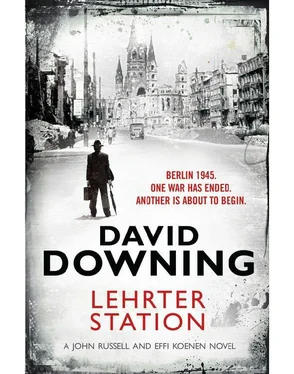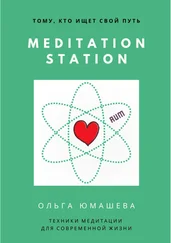David Downing - Lehrter Station
Здесь есть возможность читать онлайн «David Downing - Lehrter Station» весь текст электронной книги совершенно бесплатно (целиком полную версию без сокращений). В некоторых случаях можно слушать аудио, скачать через торрент в формате fb2 и присутствует краткое содержание. Жанр: Шпионский детектив, на английском языке. Описание произведения, (предисловие) а так же отзывы посетителей доступны на портале библиотеки ЛибКат.
- Название:Lehrter Station
- Автор:
- Жанр:
- Год:неизвестен
- ISBN:нет данных
- Рейтинг книги:5 / 5. Голосов: 1
-
Избранное:Добавить в избранное
- Отзывы:
-
Ваша оценка:
- 100
- 1
- 2
- 3
- 4
- 5
Lehrter Station: краткое содержание, описание и аннотация
Предлагаем к чтению аннотацию, описание, краткое содержание или предисловие (зависит от того, что написал сам автор книги «Lehrter Station»). Если вы не нашли необходимую информацию о книге — напишите в комментариях, мы постараемся отыскать её.
Lehrter Station — читать онлайн бесплатно полную книгу (весь текст) целиком
Ниже представлен текст книги, разбитый по страницам. Система сохранения места последней прочитанной страницы, позволяет с удобством читать онлайн бесплатно книгу «Lehrter Station», без необходимости каждый раз заново искать на чём Вы остановились. Поставьте закладку, и сможете в любой момент перейти на страницу, на которой закончили чтение.
Интервал:
Закладка:
The school doors opened, and a host of children swept out to the gate, borne on a tide of laughter and chatter. Such a comforting sound, Effi thought, one of those things you never appreciated until it disappeared, as it had in Berlin during the final years of the war.
Rosa was walking with a blonde girl around her own age. Catching sight of Effi, she almost pulled the other girl across to introduce her. ‘This is Marusya,’ she said. ‘She’s from Russia.’
‘How do you do?’ Effi said carefully in English. She was leaning down to shake the girl’s hand when the mother bustled up and seized it instead. ‘Yes, thank you,’ she almost shouted, and tugged the girl away.
Effi stared after them, feeling more upset for Marusya than herself. Rosa, though, seemed unconcerned. ‘Marusya likes drawing too,’ she confided.
They started for home, sharing Zarah’s umbrella and taking the usual path across the foot of Parliament Hill. Rosa chatted happily about her day at school. If she was thinking about her father, she was keeping it to herself.
Back at the flat Zarah was preparing the evening meal and listening to The Robinson Family on the wireless. She was also glancing frequently at the clock, Effi noticed. Lothar had announced the previous week that he was too old to be collected from school by his mother, and the way Zarah’s whole body relaxed when she heard him in the hall was almost painful to behold. He gave his mother a dutiful kiss and an ‘I told you so’ look.
A few minutes later the neighbours upstairs started one of their loud and increasingly frequent arguments. The demobbed husband had been home for several weeks now, and things were clearly building to a climax — the last time Effi had seen the wife she had clumsily tried to conceal the fact that both eyes were blackened. Effi itched to intervene, but knew it wouldn’t help. She also had vivid memories of the anti-German outburst that the women had directed at her while complaining about Paul’s noisy nightmares.
Listening to them scream at each other in a language she barely understood, she felt a sudden intense yearning for her real home.
‘Is John here for dinner?’ Zarah asked, interrupting her thoughts.
‘I think so.’
‘Are you two all right?’ her sister inquired in a concerned voice.
‘Yes, of course. What makes you ask?’ Effi replied, hearing the defensiveness in her own voice.
Zarah didn’t push it. ‘Oh, nothing. This is a hard time for everyone.’
‘How often do you think about Jens?’ Effi asked, partly in self-defence. Zarah had last seen her husband, a high-ranking bureaucrat in Hitler’s regime, in April. During their final conversation he had proudly announced that he had suicide pills for them both.
‘Not as often as I used to. I don’t miss him, but I do wonder what happened to him. And I know Lothar does. He has good memories of his father. I don’t know. Sometimes I think it’s better not to know. Other times… well…’
Through the doorway to the front room Effi could see Rosa drawing. There was so much unfinished business, so many loose ends… She had a sudden mental picture of the blood-soaked operating room in the Potsdam Station bunker, of stumps being tidied up and cauterised. It wasn’t so easy with minds.
Tuesday morning, the fog eventually lifted to reveal a cold and overcast day. Russell caught a Fulham-bound bus in Piccadilly, and was soon glad he had done so. As part of their current dispute, the conductors were still refusing to allow anyone to stand, and the packed bus was soon leaving knots of irate passengers behind. Traffic was heavy in any case, and their conductor’s determination to explain himself at every stop rendered their progress even slower than it might have been. When the bus finally ground to a halt halfway down the Fulham Road a large proportion of the male passengers decided to continue on foot.
The hawkers were out in force, and doing a fine trade in toffee apples and oranges. The local children were busy pocketing pennies for storing bicycles in their front gardens and ‘looking after’ cars in the side streets. There were two programmes on sale — an official blue one and a pirate version in red. Russell bought them both for Paul, more out of habit than anything else. Paul had been an avid collector as a boy, but the urge had obviously faded, at least for the moment. Russell wondered what had happened to the boy’s stamp collection. If the albums had been left at the house in Grunewald, someone would have stolen them by now.
Picturing that house brought Paul’s mother Ilse to mind. He had met her in Moscow in 1924, at the same conference where his and Shchepkin’s paths had first crossed. He still found it hard to believe she was dead.
The crowd grew denser as he approached the ground, with many pushing against the tide. The gates were closed, he heard one man say, but if that was the case it didn’t seem much of a deterrent. As Russell crossed the West London Line railway bridge he could see people walking along between the tracks, and others scaling the back of the grandstand. Away in the distance small figures could be seen lining roofs and walls, or precariously clinging to chimney stacks.
He fought his way through to the grandstand entrance, where ticket-holders were still being admitted, and took his place in the fast-moving line. When he passed through the turnstile there was still half an hour before kick-off, so he joined the queue for tea. A party of Russians was ahead of him, happily swapping banter with some of the locals. Watching the exchange, Russell was reminded that most ordinary people still considered the Soviets as friends and allies.
The British press was certainly helping to preserve the illusion. J. B. Priestley had just chronicled a visit to the Soviet Union in a series of articles for the Sunday Express, and his impressions had been overwhelmingly favourable. Russell was glad that the popular playwright had noticed some Soviet plusses — particularly in education and culture — but rather more disappointed that he had missed most of the minuses. And Priestley was far from alone. Some descriptions of the Soviet leadership in the British press were naive to the point of idiocy. One journalist had recently compared Stalin to ‘a collie panting and eyeing his sheep’; another had announced that his successors would be ‘middle-aged Men of Good Will’. Which planet were they living on?
Tea in hand, he followed the signs for the appropriate block and climbed the relevant steps. Emerging above the dull green pitch he found himself looking out across a huge crowd, a large portion of which had already spilled out onto the greyhound track that ringed the playing surface. More to Russell’s surprise, the Russian players were already out, passing several balls between them. Their shirts and shorts were different shades of blue, with a old-fashioned white ‘D’ where British clubs wore their badges. Their socks were a fetching bottle green.
He found his row, and searched the gloom for Shchepkin. The old Comintern operative was a dozen or so seats along, his newly white hair peeking out from under a fur hat. There was an empty seat beside him.
As Russell forced his passage along the row he realised that all those making way were Russians — the whole block was occupied by fur-hatted men smoking strange-smelling cigarettes and conversing in nasal accents. Shchepkin smiled when he saw him coming, and Russell, rather to his own surprise, found himself reciprocating. If a list were made of those ultimately responsible for the mess his life was in, then Shchepkin’s name would undoubtedly come close to the top. But so, Russell knew, would his own. And the past was not for changing.
He took the seat beyond Shchepkin, beside a burly blond Russian in a shiny new suit.
Читать дальшеИнтервал:
Закладка:
Похожие книги на «Lehrter Station»
Представляем Вашему вниманию похожие книги на «Lehrter Station» списком для выбора. Мы отобрали схожую по названию и смыслу литературу в надежде предоставить читателям больше вариантов отыскать новые, интересные, ещё непрочитанные произведения.
Обсуждение, отзывы о книге «Lehrter Station» и просто собственные мнения читателей. Оставьте ваши комментарии, напишите, что Вы думаете о произведении, его смысле или главных героях. Укажите что конкретно понравилось, а что нет, и почему Вы так считаете.












